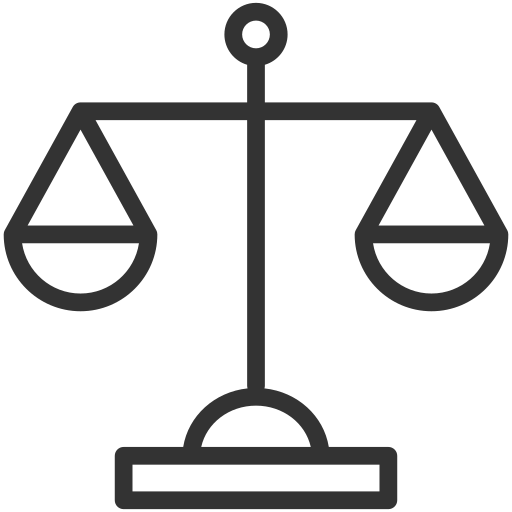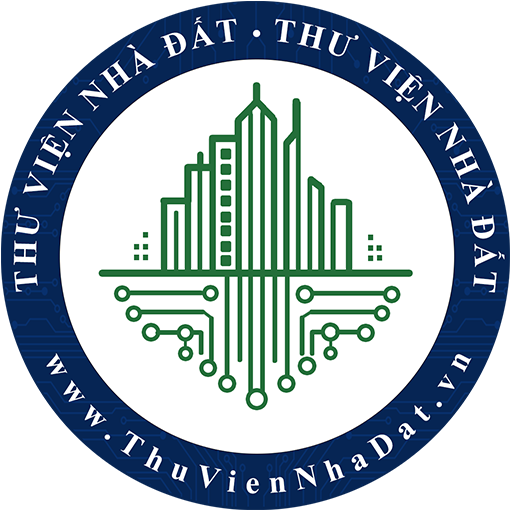Hồ sơ đề nghị đăng ký hòa giải viên thương mại vụ việc gồm có những loại giấy tờ như thế nào?
Nội dung chính
Hồ sơ đề nghị đăng ký hòa giải viên thương mại vụ việc gồm những tài liệu gì?
Căn cứ tại khoản 2 Điều 8 Nghị định 22/2017/NĐ-CP quy định như sau:
Đăng ký hòa giải viên thương mại vụ việc
1. Người có đủ tiêu chuẩn hòa giải viên thương mại quy định tại Khoản 1 Điều 7 Nghị định này muốn trở thành hòa giải viên thương mại vụ việc đăng ký tại Sở Tư pháp tỉnh, thành phố trực thuộc Trung ương nơi người đó thường trú. Trường hợp người đề nghị đăng ký là người nước ngoài thì đăng ký tại Sở Tư pháp tỉnh, thành phố trực thuộc Trung ương nơi người đó tạm trú.
2. Người đề nghị đăng ký làm hòa giải viên thương mại vụ việc gửi 01 bộ hồ sơ đến Sở Tư pháp. Hồ sơ bao gồm:
a) Giấy đề nghị đăng ký làm hòa giải viên thương mại vụ việc theo mẫu do Bộ Tư pháp ban hành;
b) Bản sao có chứng thực hoặc bản sao kèm theo bản chính để đối chiếu bằng tốt nghiệp đại học hoặc bằng sau đại học;
c) Giấy tờ chứng minh đã qua thời gian công tác trong lĩnh vực được đào tạo từ 02 năm trở lên có xác nhận của cơ quan, tổ chức nơi người đó làm việc.
Giấy tờ do cơ quan, tổ chức nước ngoài cấp hoặc công chứng, chứng thực ở nước ngoài phải được hợp pháp hóa lãnh sự theo quy định của pháp luật Việt Nam, trừ trường hợp được miễn hợp pháp hóa lãnh sự theo điều ước quốc tế mà nước Cộng hòa xã hội chủ nghĩa Việt Nam là thành viên.
3. Trong thời hạn 07 ngày làm việc, kể từ ngày nhận đủ hồ sơ hợp lệ, Sở Tư pháp ghi tên người đề nghị đăng ký vào danh sách hòa giải viên thương mại vụ việc và công bố danh sách hòa giải viên thương mại vụ việc trên Cổng thông tin điện tử của Sở; trường hợp từ chối thì phải thông báo lý do bằng văn bản. Người bị từ chối có quyền khiếu nại, khởi kiện theo quy định của pháp luật.
4. Trường hợp hòa giải viên thương mại vụ việc thôi làm hòa giải thương mại vụ việc thì gửi văn bản thông báo cho Sở Tư pháp tỉnh, thành phố trực thuộc Trung ương nơi đăng ký hòa giải viên thương mại vụ việc. Sở Tư pháp xóa tên hòa giải viên thương mại đó khỏi danh sách hòa giải viên thương mại vụ việc của Sở.
5. Trường hợp tổ chức, cá nhân phát hiện hòa giải viên thương mại vụ việc không còn đủ tiêu chuẩn quy định tại Khoản 1 Điều 7 Nghị định này hoặc vi phạm quy định tại Điều 10 Nghị định này thì thông báo cho Sở Tư pháp tỉnh, thành phố trực thuộc Trung ương nơi hòa giải viên thương mại vụ việc đăng ký. Sở Tư pháp tiến hành xem xét, xóa tên hòa giải viên thương mại vụ việc đó khỏi danh sách của Sở.
Như vậy theo quy định trên hồ sơ sơ đề nghị đăng ký hòa giải viên thương mại vụ việc gồm có:
- Giấy đề nghị đăng ký làm hòa giải viên thương mại vụ việc theo Mẫu số 01/TP-HGTM ban hành kèm theo Thông tư 02/2018/TT-BTP.
- Bản sao có chứng thực hoặc bản sao kèm theo bản chính để đối chiếu bằng tốt nghiệp đại học hoặc bằng sau đại học.
- Giấy tờ chứng minh đã qua thời gian công tác trong lĩnh vực được đào tạo từ 02 năm trở lên có xác nhận của cơ quan, tổ chức nơi người đó làm việc.
Lưu ý: Giấy tờ do cơ quan, tổ chức nước ngoài cấp hoặc công chứng, chứng thực ở nước ngoài phải được hợp pháp hóa lãnh sự theo quy định của pháp luật Việt Nam, trừ trường hợp được miễn hợp pháp hóa lãnh sự theo điều ước quốc tế mà nước Cộng hòa xã hội chủ nghĩa Việt Nam là thành viên.
 Hồ sơ đề nghị đăng ký hòa giải viên thương mại vụ việc gồm có những loại giấy tờ như thế nào? (Hình từ Internet)
Hồ sơ đề nghị đăng ký hòa giải viên thương mại vụ việc gồm có những loại giấy tờ như thế nào? (Hình từ Internet)
Quyền và nghĩa vụ của hòa giải viên thương mại ra sao?
Căn cứ vào Điều 9 Nghị định 22/2017/NĐ-CP quy định như sau:
Quyền, nghĩa vụ của hòa giải viên thương mại
1. Hòa giải viên thương mại có các quyền sau đây:
a) Chấp nhận hoặc từ chối thực hiện hoạt động hòa giải thương mại;
b) Từ chối cung cấp thông tin liên quan đến vụ tranh chấp, trừ trường hợp các bên có thỏa thuận bằng văn bản hoặc theo quy định của pháp luật;
c) Được hưởng thù lao từ việc thực hiện hoạt động hòa giải thương mại theo thỏa thuận với các bên tranh chấp;
d) Các quyền khác theo quy định của Nghị định này và của pháp luật có liên quan.
2. Hòa giải viên thương mại có các nghĩa vụ sau đây:
a) Tuân thủ pháp luật, quy tắc đạo đức và ứng xử của hòa giải viên thương mại; độc lập, vô tư, khách quan, trung thực;
b) Tôn trọng thỏa thuận của các bên nếu thỏa thuận đó không vi phạm pháp luật và không trái đạo đức xã hội;
c) Bảo vệ bí mật thông tin về vụ tranh chấp mà mình tham gia hòa giải, trừ trường hợp các bên có thỏa thuận bằng văn bản hoặc theo quy định của pháp luật;
d) Thông báo cho các bên về thẩm quyền, thù lao và chi phí trước khi tiến hành hòa giải;
đ) Không được đồng thời đảm nhiệm vai trò đại diện hay tư vấn cho một trong các bên, không được đồng thời là trọng tài viên đối với cùng vụ tranh chấp đang hoặc đã tiến hành hòa giải, trừ trường hợp các bên có thỏa thuận khác;
e) Các nghĩa vụ khác theo quy định của Nghị định này và của pháp luật có liên quan.
Như vậy, quyền và nghĩa vụ của hòa giải viên thương mại được thực hiện theo nội dung nêu trên.
Không được làm hòa giải viên thương mại trong trường hợp nào?
Căn cứ tại khoản 4 Điều 7 Nghị định 22/2017/NĐ-CP quy định như sau:
Tiêu chuẩn hòa giải viên thương mại
1. Người có đủ tiêu chuẩn sau đây thi được làm hòa giải viên thương mại:
a) Có đầy đủ năng lực hành vi dân sự theo quy định của Bộ luật dân sự; có phẩm chất đạo đức tốt, có uy tín, độc lập, vô tư, khách quan;
b) Có trình độ đại học trở lên và đã qua thời gian công tác trong lĩnh vực được đào tạo từ 02 năm trở lên;
c) Có kỹ năng hòa giải, hiểu biết pháp luật, tập quán kinh doanh, thương mại và các lĩnh vực liên quan.
2. Hòa giải viên thương mại được thực hiện hòa giải thương mại với tư cách là hòa giải viên thương mại vụ việc hoặc hòa giải viên thương mại của tổ chức hòa giải thương mại theo quy định tại Nghị định này.
3. Tổ chức hòa giải thương mại có thể quy định tiêu chuẩn hòa giải viên thương mại của tổ chức mình cao hơn các tiêu chuẩn quy định tại Khoản 1 Điều này.
4. Người đang là bị can, bị cáo, người đang chấp hành án hình sự hoặc đã chấp hành xong bản án nhưng chưa được xóa án tích; người đang bị áp dụng biện pháp xử lý hành chính đưa vào cơ sở giáo dục bắt buộc, cơ sở cai nghiện bắt buộc thì không được làm hòa giải viên thương mại.
Như vậy theo quy định trên không được làm hòa giải viên thương mại trong trường hợp sau:
- Thứ nhất, người đang là bị can, bị cáo, người đang chấp hành án hình sự hoặc đã chấp hành xong bản án nhưng chưa được xóa án tích.
- Thứ hai, người đang bị áp dụng biện pháp xử lý hành chính đưa vào cơ sở giáo dục bắt buộc, cơ sở cai nghiện bắt buộc.














